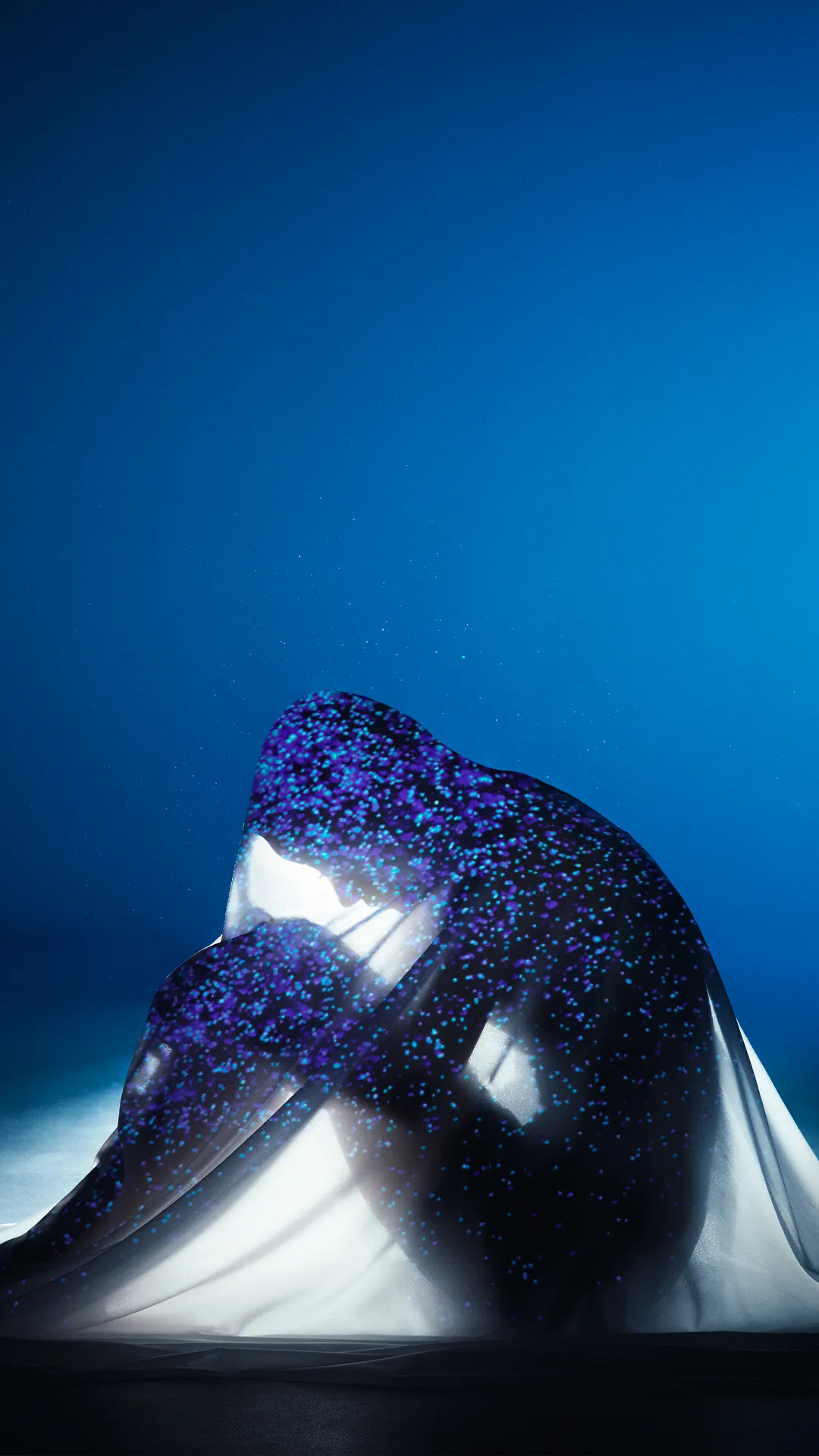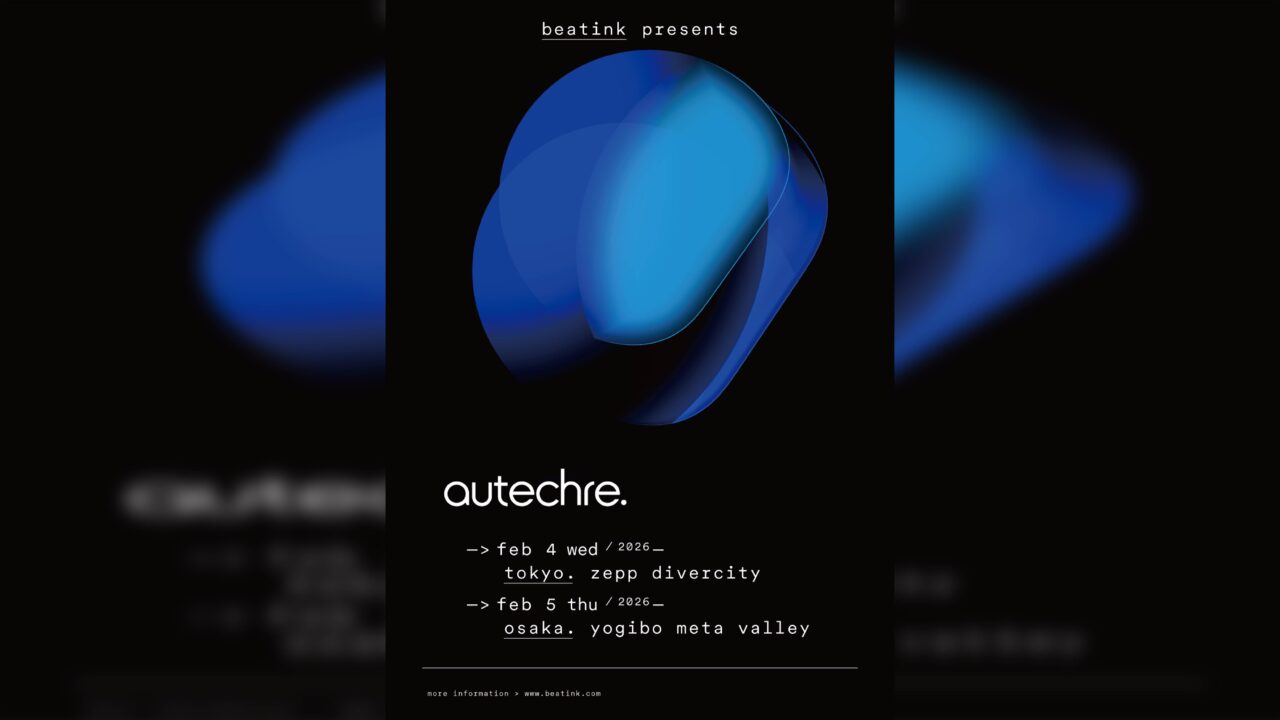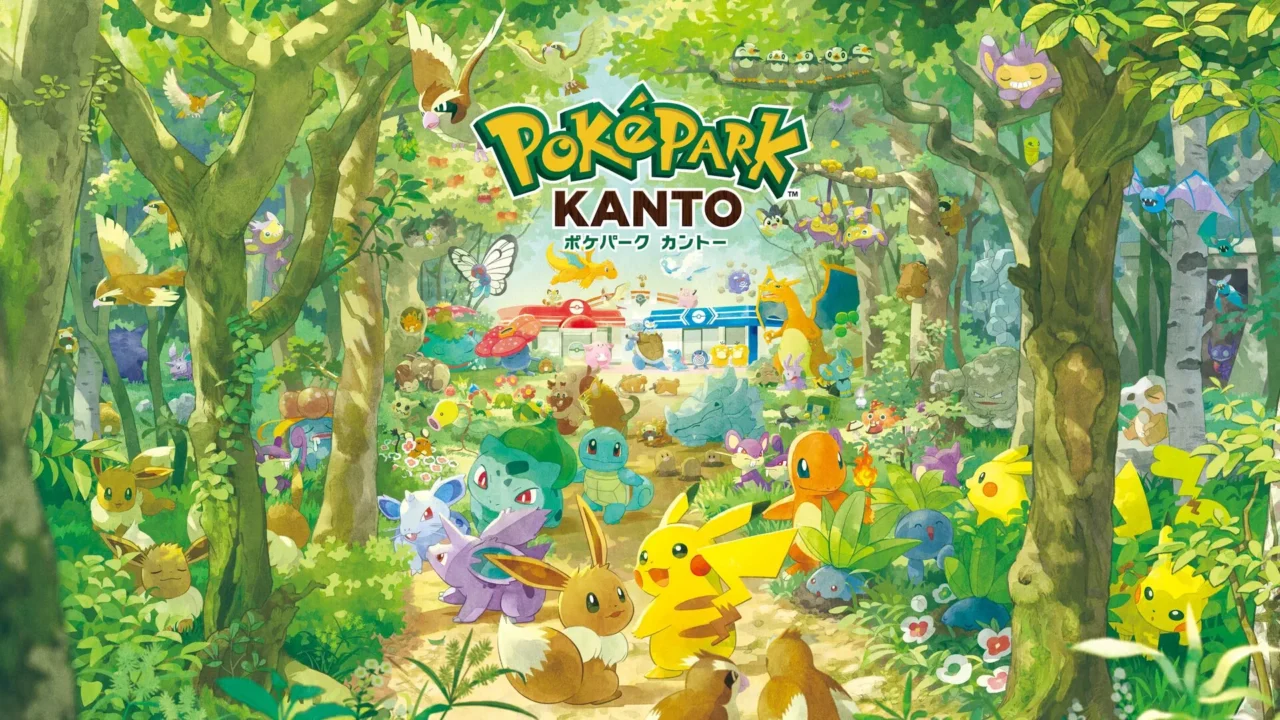Kaika, the virtual singer-songwriter, has completed their first album, “Umareru Mae Kara Kimi o Shitteru.” The title, drawn from the lyrics of their very first song “Kaika,” is more than just words—it’s a declaration of self. It speaks to the unbroken thread between Kaika and their past identity, Kaf, a reminder that no matter how the image shifts, the voice remains the same. The album itself bridges these worlds, blending past and present into a single, continuous story.
But even without this backstory, “Umareru Mae Kara Kimi o Shitteru” stands as a breathtaking debut, filled with raw emotion and vivid storytelling. Across 15 tracks, the album paints the restless journey from adolescence to adulthood, at times deeply realistic, at times dreamlike. Yuki Yamato lends her vision to a three-part music video series, featuring “Tenkōsei,” “Higurashi no Uta,” and “Stand by Me,” while Yusuke Koide of Base Ball Bear brings his touch to “Tokyo, Bokura wa Daijōbu Kana.” With diverse arrangements and Kaika’s expressive vocals, each song transforms into a shimmering pop gem.
A flower blooms, the wheel begins to turn—Kaika’s voice is here, ready to take flight.
INDEX
Kaf and Kaika: No Longer Bound by Binary Opposition
The album release was announced during your online concert in January. Looking back, how did that day feel for you?
Kaika: Since I was first introduced on the stage of KAF’s solo concert, a lot of people see me as an extension of KAF and have been supporting me because of that connection. But this time, it was my own solo concert. I was both nervous—wondering if people would come to watch—and excited about the chance to try something new.
Since it was a Transmission Live, the visuals were on a whole new level—unlike anything I’d seen before. They created virtual versions of places that felt familiar from my time as KAF, like the streets of Shibuya and the tree-lined paths of Yoyogi Park, which was really moving. The way particles of light burst out with the music, or how rain started falling—it all reflected the emotions in the songs and even my movements. That made me really happy, and I was able to sing with a sense of calm and confidence.
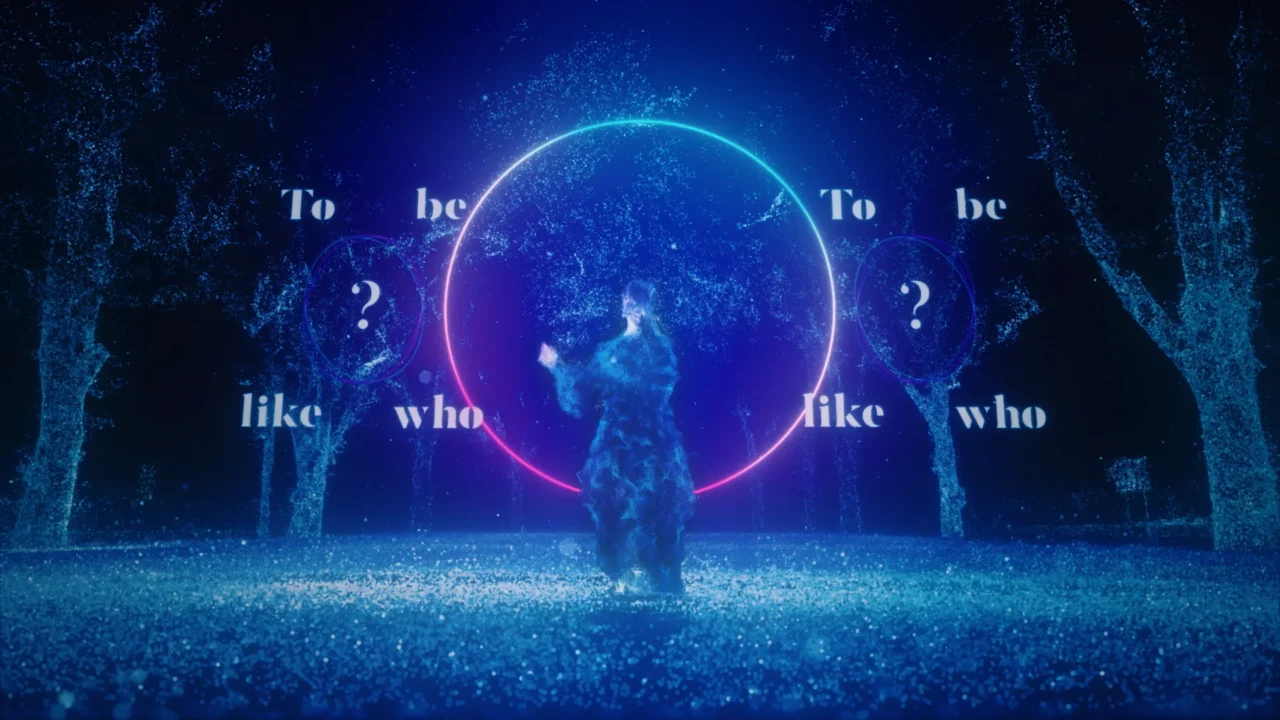
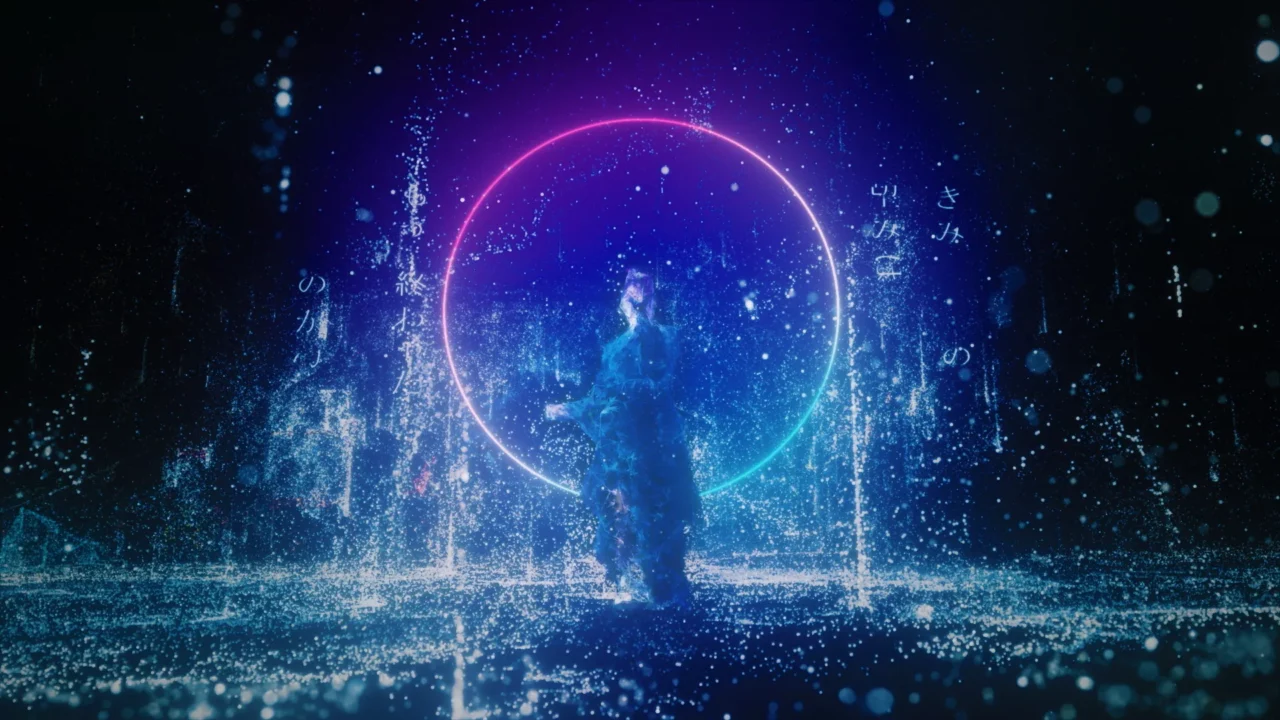
That day also marked your first anniversary as Kaika. How do you look back on this past year?
Kaika: While what I do hasn’t drastically changed, the biggest difference is that the songs I used to make just for myself are now being heard by others, and that makes me really happy. “My Dear” and “Remember,” which are on this album, were originally written as KAF songs—they were the first ones where I really thought about how they’d be received by listeners. After my debut at the Yoyogi concert in January, I started making Kaika’s songs with that same awareness, thinking, “Someone might actually be listening to this.” Over the past year, that shift in mindset has changed the way I approach songwriting.
Some people tend to see KAF and Kaika as two opposing identities, but in your live shows and interviews, you’ve talked about how they’re actually connected. A year in, do you feel that perception has changed?
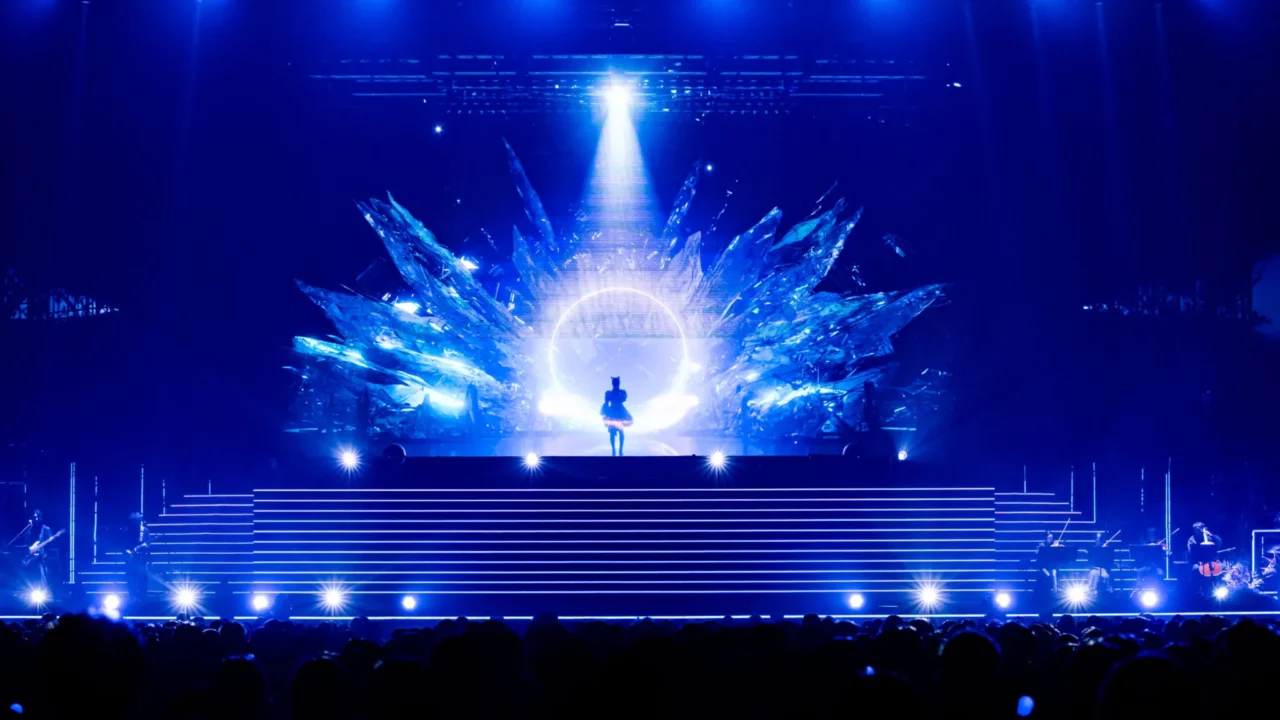
Kaika:As for that, I’ve stopped worrying about it as much. Now, I just think, “If I make good songs, that’s enough” (laughs). I think that’s one of the biggest changes since a year ago.
I imagine that feeling developed gradually, but was there a specific moment or trigger that led to this shift?
Kaika: Hmm… I guess it was gradual after all. I started hearing more people close to me say they liked Kaika’s songs, and that made me happy. That includes the team, and even people I met as KAF through radio who told me, “I like Kaika’s songs too.” Receiving those kinds of comments, little by little, is what I think really changed my mindset.
INDEX
A New Credit Born from Unconstrained, Creative Thinking Leading to a Fresh Concept
The album includes songs you made in high school as well as more recent ones created as Kaika. I imagine you didn’t start out with a clear idea of “this is the kind of album I want to make,” but looking back, what kind of significance do you feel this album holds for you?
Kaika: You’re right, I think of it as more of a compilation album. The title “Umareta mae kara kimi wo shitteru” is a phrase from one of Kaika’s lyrics. Even though it’s a new identity, I’ve been singing about myself, who has always existed. So, it’s especially meaningful to me that “My Dear” and “Remember,” songs written as KAF, are included in this album.m before. In that sense, it means a lot to me that “My Dear” and “Remember” are on this album.
I struggled for a long time over whether to release these two songs under Kaika or KAF’s name. I worried that if I released them as Kaika, it might take away some of the good memories that KAF fans have. But “My Dear” is a song I wrote for the fans, and “Remember” is a song I wrote for Kanazaki Iori, who had been writing KAF’s original songs. Both songs came from my feelings, so in that sense, they’re just as much Kaika’s songs. Since I’ll continue to work on both projects, and they’re not completely separate, I decided to include them in this album as a way to express that.
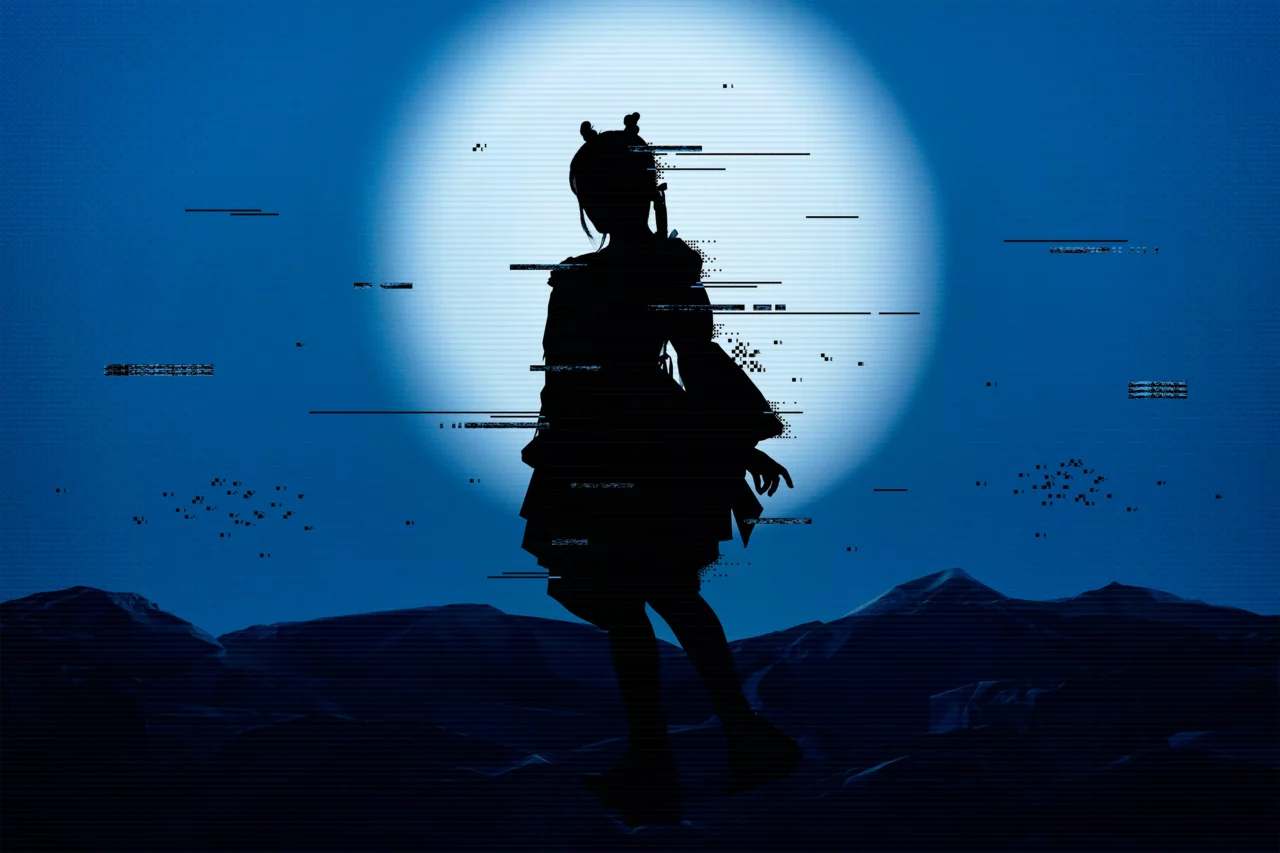
A trailblazing virtual singer-songwriter of the new generation, Kaika made her debut on January 14, 2024, during KAF’s 4th ONE-MAN LIVE “Kaika” at the National Yoyogi Stadium First Gymnasium. Marking a pivotal evolution in KAF’s artistic journey, Kaika masterfully blends a wide array of musical genres with unique, dynamic expressions. She pours her raw, impulsive emotions into her songs, giving voice to the deep feelings that stir within her. Through her one-of-a-kind sensibility, she transforms everyday thoughts, emotions, and memories into vibrant soundscapes and lyrics. With every note, an indomitable, beautiful energy blooms—untouchable and pure.
It’s really important that these two songs are included. But at first, you were unsure about including songs you originally sang as KAF on a Kaika album.
Kaika: I was the one most concerned about that. After all, KAF is something we create as a team, so I felt like mixing my personal things into it might not be right.
I sometimes think about it… for example, if I accidentally walked out in front of the monitor during a KAF live show, everyone would probably just think, “This weirdo’s crashing the stage!” (laughs). That feeling used to be a bit of a complex for me, but with this album coming out, I’ve been able to sort through those feelings. I realized that it’s not about that—it’s not the essence. KAF and Kaika are connected through me, and I feel like this album allowed me to express that.
The credits for these two songs are listed as “KAIKA & KAF,” and I thought that was really beautiful.
Kaika: I didn’t want to split the credits in a way that would make people think one of them was a lie, so I’m glad I could define it this way. It’s been really freeing, and now it’s easier to work this way. I think it’s great not to be bound by fixed ideas like, “If it’s this name, it has to be this way,” and instead, I can choose whatever feels right for me.
INDEX
Kaika’s Artistic Inspirations: RADWIMPS, Shuntaro Tanikawa, Tahi Saihate
This is the first time we’re interviewing you solo as Kaika, so could you tell us what first inspired you to start making music?
Kaika: I bought a guitar when I was in 9th grade. I thought it might be fun to try making songs, so that’s how I started.
About “Higurashi no Uta”, you mentioned in a previous interview that it was a song about things you couldn’t tell your friends, like your activities as KAF, and that you wrote it while thinking about those things on your way home from school. Was that sense of turning things you couldn’t say into songs something you’ve always felt?
Kaika: My feelings at that time often became abstracted into songs, and I think there were times when I could express emotions that I might have found difficult to voice directly through music. Also, I just remembered that the 3DS had a recording function, so I would record my songs using just my voice. I also enjoyed writing, so I created a sort of lyrics notebook where I would write down lyrics all the time.
Your lyrics are wonderful, but did you also enjoy reading books and words?
Kaika: Yes, I did. I liked both novels and manga, but I also loved poetry. I admire poets like Shuntaro Tanikawa and Tahi Saihate.
How about the sources of influence for your songwriting?
Kaika: At first, I practiced by playing RADWIMPS songs on guitar, trying to mimic their chord progressions. Your Name. had such a big impact on me… I heard RADWIMPS for the first time in the theater, and I was like, “What is this?!” Before that, I had only listened to music that played on TV, and later I got into Vocaloid and listened to artists like HoneyWorks. But RADWIMPS was completely different from anything I had heard before, so I was really shocked. After that, I started listening to more Japanese rock, and discovered bands like Mrs. GREEN APPLE, and I was like, “Wow, there are so many different artists!” It really surprised me [laughs].
INDEX
Navigating the Shift from Student to Adult: The Emotions Behind the Album
Creating songs with simple guitar and basic beats, then working with arrangers to match them with your vision sounds fun but also challenging in terms of conveying your ideas. How did you feel about the process of making this album?
Kaika: When arranging, I usually send references like, “I want this kind of atmosphere” or “It would be great to have this type of sound.” The arrangers really picked up on these ideas, and they made arrangements that were even better than I had imagined. For example, with “Hatsukoi”, I originally envisioned it as a shoegaze track, but it ended up sounding more like ambient music. The arrangement by Takeshi Okamoto was exactly what I loved. It was so different from what I had in mind, but it was an idea I hadn’t thought of, so I’m really glad I included it in this album. For “Byakuya, Yureru Inochi”, Isao Sudo did the arrangement. Since it’s a song about the white night, I only knew how to express it in a very sensory way, like, “I want icy, cold sounds.” He really nailed it—when I heard it, I thought, “This is exactly what I wanted!” I was so amazed.
“Tokyo, Bokura wa Daijoubu Kana” was produced by Yusuke Koide from Base Ball Bear.
Kaika: Yes, I really love the songs Yusuke Koide has worked on, like those with Yasky Okamura and featuring Shihori Nanba and Kana Hanazawa. I also love his tracks with Kana Hanazawa, like “Koisuru Kankaku”, and I’m a huge fan of the way he does female vocals.
The theme of the lyrics is clearly about moving to Tokyo.
Kaika: Yes, that’s right. I used to live in the Tohoku region, and I would come to Tokyo twice a month by bullet train, so I didn’t have much sense of the place. But after I started living in Tokyo, I began to understand where things are and what kinds of people are around. I got used to the crowds, and when the memory of what I felt when I first arrived started to fade, I began to wonder… “Am I okay?”
Is that feeling of unease about getting used to Tokyo?
Kaika: Not exactly. It was more about wondering, “Am I okay with being treated as an adult?” That was the real trigger. When I started living on my own, I no longer had anyone telling me what to do or getting angry at me.
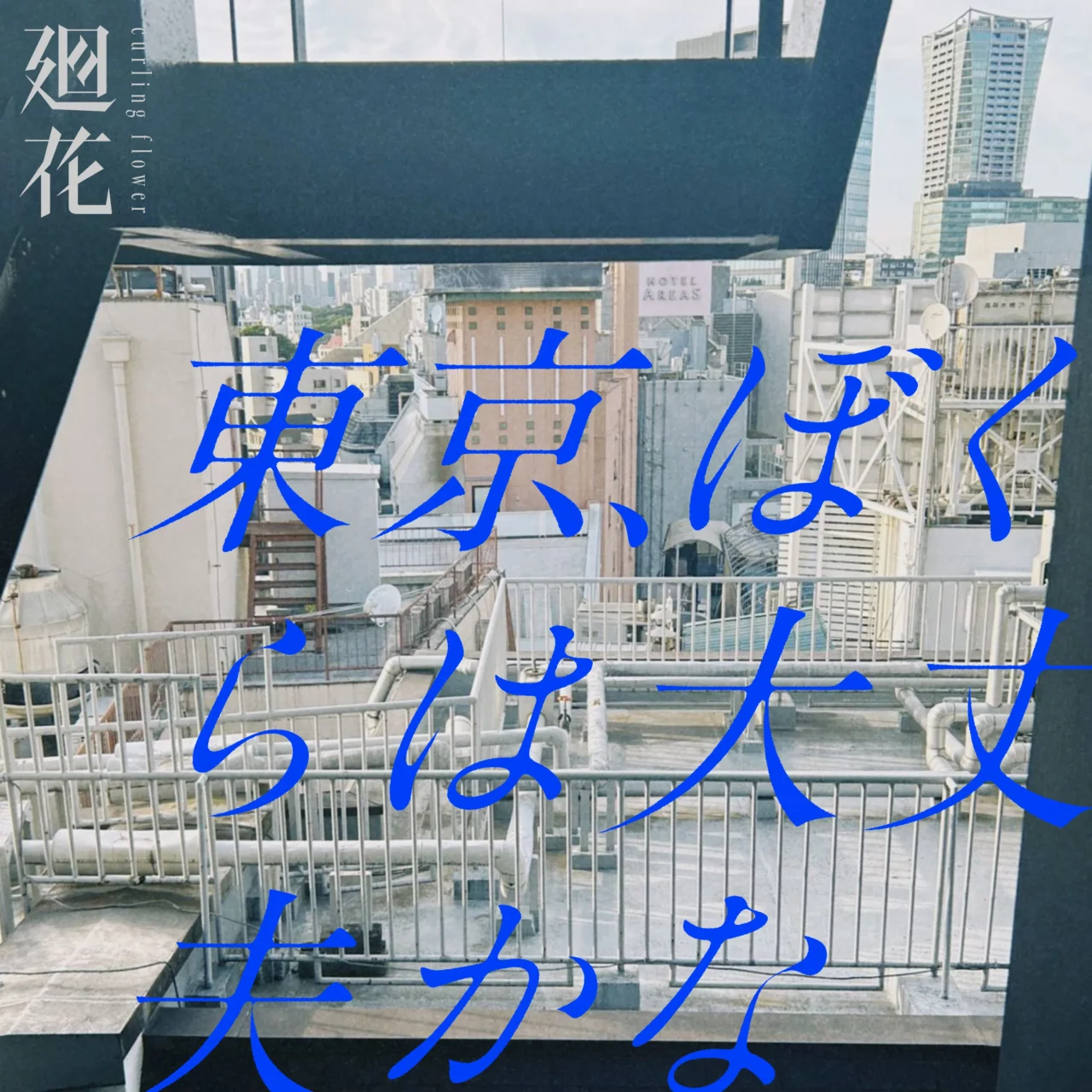
You previously mentioned that “Stand by Me” was a song born from the anxiety of growing up and losing the things you once relied on as a child. It seems that this new album also carries a lot of the anxiety and confusion that comes with transitioning from being a student to an adult.
Kaika: Yes, that’s right. This song has a “morning” image for me. I was hanging out with my friends until the morning, and when I passed through Shibuya on the way back, the usually crowded scramble crossing was completely empty. There’s a sense of joy in being able to experience something like that, and as I accumulate more experiences, there are fun moments. I think to myself, “We’re okay,” but at the same time, I know that this won’t last forever, and there are moments when I wonder, “Am I really okay?” So, I decided to end the song with that feeling of uncertainty, asking “Are we really okay?”
INDEX
The Learning Process (and the Struggles) with Yusuke Koide
Considering the theme, what was your interaction like with Koide-san when creating the song?
Kaika: I wasn’t present for the recording, but Koide-san invited an incredibly talented group of people*. I think the recording took place in the same space, and it felt like the emotion was transformed into sound. I was really moved by that. Also, for this song, I played the backing guitar myself, but it probably took longer than any other recording I’ve done so far (laughs).
* Kenjtaro Nakao, Motifo Kida (tricot), Takeshi Takahashi (Frederic)
Did Koide suggest that you play the guitar?
Kaika: Yes, he suggested it, and I borrowed his guitar. I had learned chords in a way where I memorized shapes, like “if my fingers are in this position, it makes this sound,” but Koide-san, being a guitarist, can freely choose any sound from the fretboard depending on where he presses. I was really impressed to see that in action (laughs). Also, regarding my singing, with KAF, I’ve usually done recordings where it’s just me and the engineer, working until I’m satisfied. But when I played my take for Koide-san, he asked me, “Can you try singing at about 30% effort?”
So, he wanted you to sing more relaxed.
Kaika: With KAF, I’ve always been the one in charge of the singing, and the people who listen to my songs value the emotion I put into it, so I always give it my all. But when Koide-san told me that singing with all my emotions could tire people out, it made sense to me. It was an opportunity to reflect on my established way of singing. For example, there’s a line in the song, “The laundry swayed, and as I stared at the rooftop, I smelled dinner from somewhere,” and at first, I sang it exactly how I wanted. But Koide-san said, “This sounds like the smell of curry. I’d like the listener to imagine what the dinner is.”
That’s an interesting perspective.
Kaika: But there was one take that Koide-san liked, and I couldn’t quite accept it. It felt like a battle [laughs]. In the end, I got to go with the take that I preferred, but the whole “try singing at 30% effort” thing was something I would never have done on my own, and I ended up really liking that way of singing. It was a big discovery for me. It was a great experience.
“Tokyo, Bokura wa Daijoubu Kana” has anxiety and impatience as its background, but the impulsive, upbeat band sound adds a great contrast to it. The combination works really well.
Kaika: Exactly, that’s it. The sound is so cool. I’ve listened to a lot of bands, but what I love about songs like this is how they express that impulse through not just the voice and the singing, but through all the sounds that are playing. I really feel that “Tokyo, Bokura wa Daijoubu Kana” became one of those songs thanks to Koide-san’s influence.
On the other hand, “Hakai no Uta” uses shocking phrases like “time bomb, me,” but the song’s style is more lo-fi hip hop, a bit chill. There’s an interesting contrast between the tone of the song and those words.
Kaika: That’s true. I might have separate ideas in my mind for “this kind of melody” and “these kinds of lyrics.”
Regarding “Hakai no Uta,” I’m really bad at getting angry… but during that time, I was constantly angry. However, no one was to blame, so I didn’t know who to direct it at. I felt isolated, and even when I was on the train, I’d suddenly start crying or think, “Everything should just be destroyed.” But those feelings of destructive impulses that I couldn’t express to anyone usually fade away after a good night’s sleep. There’s a lyric that goes, “By tomorrow, everything will be back to normal.” For me, it was like how even if Ultraman’s enemies destroy a city, the next week everything is back to how it was. That’s the kind of image I had while writing the song.
In terms of expressing things you can’t say directly, maybe the essence hasn’t changed since “Higurashi no Uta.”
Kaika: Yes, I think so. “Higurashi no Uta” was a song I made a little while ago, and at that time, I had drawn a line in my mind between myself and the adults around me, and I think I often relied on that position. Because of that, I didn’t know how to relate to others, but after moving to Tokyo, I feel like I’ve grown a little, and over the past year or two, I’ve finally become able to say what I want to say.
And you also had a battle with Koide-san (laughs). Also, “Terminal” is a song that’s been performed since your first live show, and I’m sure many people were waiting for its official release.
Kaika: “Terminal” was a song that came about when I was feeling really suffocated after seeing things on social media. There were people who had passed away due to cyberbullying, but after a little while, everyone forgets, and everything just moves on. I felt a strong sense of discomfort about that. There’s always one news story, and once it’s over, it’s onto the next, and then the next. I wondered, “Where does everyone want to go?” and that became the theme of the song.
It’s wonderful how those introspective feelings are transformed into an emotional yet beautiful song.
Kaika: I’m really happy that many people say they love “Terminal.”
INDEX
A Song to Support and Comfort Those Struggling in Silence
To wrap up, I’d like to talk about “KAIKA” one more time. Personally, I found the lyrics, “Flickering, slipping through light and shadows / Sparkling, I chased with blue eyes / This time, I want to get closer,” very striking. What thoughts or feelings are expressed in these lines?
Kaika: The reason I chose to write “KAIKA” as “廻る花” (the turning flower) was because I wanted to sing about myself, someone who keeps turning and evolving. But in this song, I wanted to express not just the idea of a “turning flower,” but also that of a “blooming flower.” There’s an image of a bud or a cocoon, where the light shining from within, although bright, isn’t fully understood yet. It’s like waiting patiently, and when it finally opens, it’s as if the ceiling disappears, and the sky suddenly feels much higher.
The artwork, along with the album, definitely carries this image of a bud or cocoon. I also imagined it in the context of live performances. From the light we’ve seen before through “Kafu,” I feel that as “KAIKA,” I can get closer to the audience, allowing them to feel more connected, which adds a new nuance.
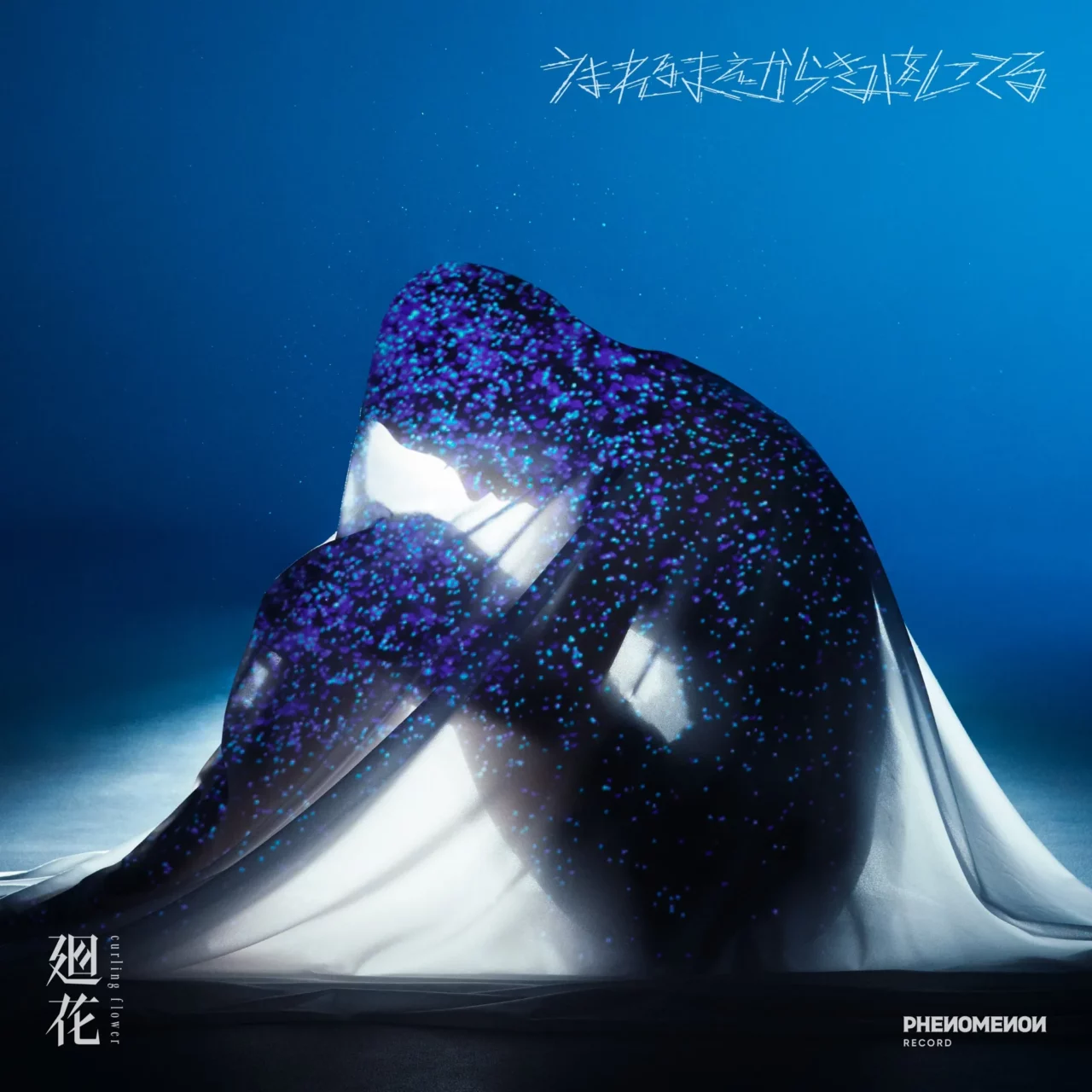
Kaika: Yes, that’s definitely part of it. The “blue eyes” reference is also because Kafu has blue eyes.
And then there’s the phrase “Because I’m me” at the end, which really stands out. It seems to capture the essence of “both Kafu and KAIKA are parts of me,” but it also feels like a heartfelt message to the listeners, encouraging them to live true to themselves.
Kaika: This time, most of the songs I’ve made are for myself, so I haven’t really thought about saving someone. However, I do hope these songs can be something for people who, like me, have feelings they can’t express or are struggling, and that these songs can offer some kind of comfort. For me, my own songs are that kind of support, so if they turn out that way for others, that would be my greatest wish. Also, the title “Umareru Mae Kara Kimi wo Shitteru” and the lyrics of “Kaika” are meant to create a sense of mystery. I imagine that when people who only know KAIKA hear it, they might think, “What does this mean? I don’t get it…” And I hope that, in the process, they might also learn about Kafu.
Right now, I think there are more people who know KAIKA through Kafu, but with the release of this album, there might be more people who come to know Kafu the other way around. It’d be wonderful if, in the future, both Kafu and KAIKA could be loved by the same people.
Kaika: That’d be amazing to see happen!
Kaika “Umareru Mae Kara Kimi wo Shitteru”
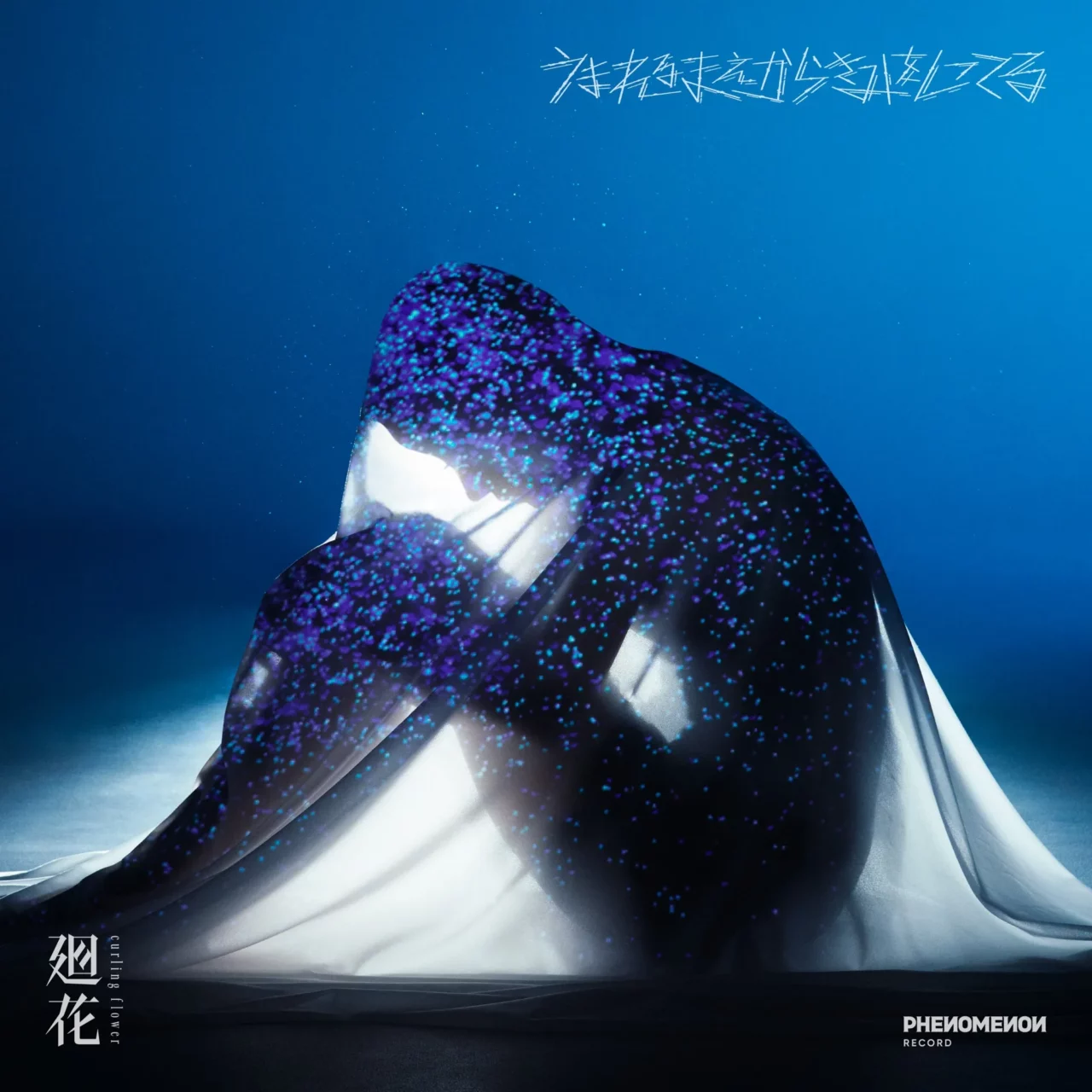
Release date: March 26, 2025
- Tenkousei
- Higurashi no Uta
- Hatsukoi
- Taaminaru
- Hakai no Uta
- Maidia
- Rimenbaa
- Tedibea
- Randomaaku
- Trance
- Byakuya, Yureru Inochi
- Hoshihitsu
- Sutando Bai Mii
- Tokyo, Bokura wa Daijoubu Kana
- Kaika



